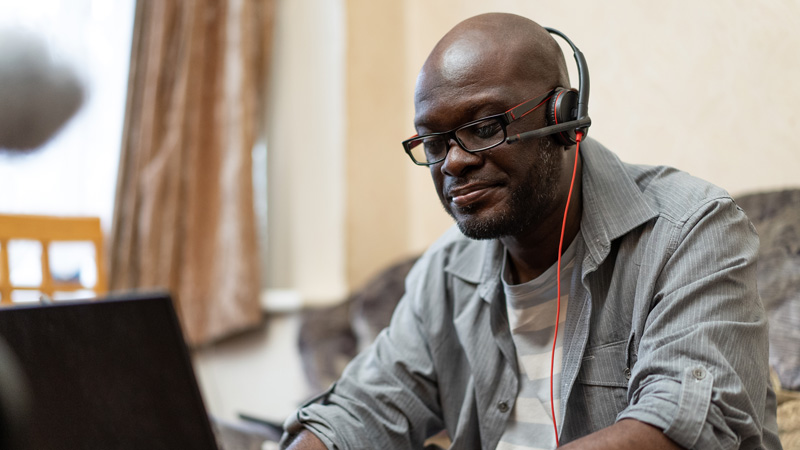'It was a major relief to return to work.'

One in four strokes in the UK happen to people of working age. Going back to work after a stroke can feel daunting, but planning ahead and getting the right support can make all the difference.
For Roger Raymond, 48 from Croydon, returning to his career in public affairs was a huge step after a stroke in 2018 left him unable to speak or write properly.
'I was always good at communicating,' he says. 'My stroke left me unable to speak properly. The impact of that was just so huge. I went from drafting ministers' letters and policy reports to not being able to write. It was a huge sense of loss.'
The stroke had damaged the part of Roger's brain that controls speech, causing a communication difficulty known as aphasia.
'The Stroke Association guided me through the hardest of times,' he says. 'I went through seven months of speech and language therapy. With the support of Jack, my Stroke Association Support Coordinator, my speech began coming back quicker than I expected.
'As my speech returned, I was able to start applying for jobs. And after two interviews I was offered a job in the policy team at an East London local authority.'
With support from his employer, Roger is thriving in his new role.
'To be able to return to work was a major relief. I'm supported by my manager and colleagues, who proofread my work and help me manage committee meetings. This has allowed me to perform in my role to a high standard,' he explains. 'Most people don't realise I've had a stroke - they say I just sound like I have a slight stutter.
'It's really important for employers to be aware of the non-physical complications caused by a stroke, like aphasia, as well as the physical ones, so they can support stroke survivors to return to work.'
Planning your return to work
Think about a phased return to work - You might wish to start off with part-time hours or a voluntary role, before building up to a full-time return to work.
Talk to your employer - It's important to have open, regular communication with your employer so they know how best to support you.
Know your rights - The Equality Act 2010 sets out what you should expect from your employer, such as reasonable adjustments to allow you to work. Find out more at Equality Human Rights.
Join our Online Community and connect with thousands of people on the forum who understand stroke first hand. Chatting to people can help you cope better and rebuild your life after stroke.
Learn more
Get more information about returning to work after stroke.
Stroke News magazine
This article is featured in the spring 2022 edition of our magazine, Stroke News. Subscribe to our future editions available in print, on audio CD, or via email.
